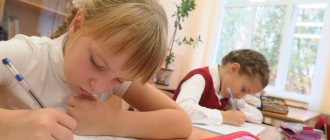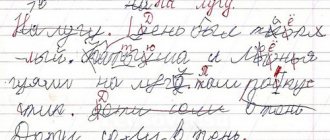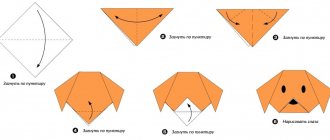Stuttering, incorrect sound pronunciation, reading and writing problems prevent children from adapting to school, achieving academic success and making friends in the community. If the problem is not solved, difficulties with learning and communicating with classmates will only increase. Classes with a speech therapist for schoolchildren will help to avoid a negative scenario.
Services of the speech therapy room "Victoria"
The Victoria speech therapy office offers the services of a speech therapist and defectologist in Moscow for school-age children. Classes with a specialist will help:
- when writing - substitution of letters, violation of the syllabic structure of the word, mirror distortion of the letter (dysgraphia);
- for persistent reading impairments (dyslexia);
- with incorrect sound pronunciation;
- when stuttering as a result of excitement (logoneurosis);
- in case of impaired perception, attention and other disorders.
At the first consultation with a speech therapist for schoolchildren, we examine the child’s speech, level of reading and writing, and determine the diagnosis. The program of work with the child is drawn up individually. Classes with a speech therapist for younger schoolchildren will not only improve speech and writing skills, but also improve grades. The child will better understand the teacher during lessons and cope with anxiety and tightness when answering.
Reading and writing
No child can learn to read and write right away. For some this comes easily; for other children, due to various forms of speech pathologies, difficulties are observed. Such children need classes with specialists in order to write beautifully and competently, read quickly and correctly, and understand the text they read.
Our specialists conduct reading classes. We take classes for children over 6 years old and schoolchildren who, for some reason, have not mastered reading skills in class. First, we learn to hear sound, to isolate it from the stream of speech. Then we introduce the child to the letter denoting this sound. We teach the child to put sounds into syllables and then into words.
If a child encounters errors when writing that are not related to compliance with the spelling rules of the Russian language, it is also necessary to contact a speech therapist. When writing, there may be errors associated with mirror spelling of letters, omissions of letters in a word, or spelling words in sentences together. We will help you cope with this problem in our dysgraphia correction classes.
Classes with a speech therapy (defectological) focus
In the preschool period (from birth to seven years), the child lays the foundations for understanding the world, which he will use for the rest of his life. If a child does not have enough experience, the lack of knowledge will hinder his development in the modern world. A child with well-developed speech can easily communicate with peers. He can fully express his feelings, thoughts, desires, and ask for advice from parents, peers, and teachers. Unclear, limited, meager speech makes communication difficult and can contribute to the formation of complexes. A child with difficulties in speech development has a significantly reduced curiosity, which has an extremely negative impact on overall development as a whole.
The program differs from the standard program by the addition of articulatory gymnastics at the beginning of the lesson, more hours are allocated to reinforce the concepts of sound and letters, tasks for phonemic analysis and synthesis are expanded, more attention is paid to tasks for the development of coherent speech
The main objectives of the speech therapy course:
- Ensure creative speech.
- To form in the child tendencies towards self-development of his own speech.
- Formation of structural systems of language - grammatical, phonetic, lexical.
- Preparing for literacy.
- Teaching literacy and writing.
- Development of graphomotor skills.
- Development of knowledge about the world around us.
- Formation and development of higher mental functions (attention, memory, logical thinking).
- Development of mathematical concepts.
- Development of the emotional-volitional sphere.
- Formation of a positive attitude towards classes.
- Developing the ability to act according to the rules.
- Development of communication skills.
The program pays great attention to working on expanding the child’s active and passive vocabulary. Particular attention is paid to consolidating sound pronunciation. Teachers structure their lessons taking into account the individual characteristics of the child. All these conditions contribute to:
- Formation of a high culture of speech.
- Increasing the expressiveness of a child's speech. Which in turn becomes an important stimulus for the development of higher mental functions (attention, memory, logic).
- SPEECH DEVELOPMENT:
(Express 17 lessons, Full 24 lessons)
- - we teach to identify several signs of objects, actions of an object or actions with an object;
- — we teach how to make sentences from 3-4 suggested words;
- - retell short stories;
- — we teach how to solve riddles, explain the meaning of proverbs, understand figurative expressions;
- — we teach how to solve puzzles;
- - we teach you how to correctly express your thoughts;
- -learn to distinguish between vowels and consonants
- — we teach how to expressively perform poems;
- — we teach how to use words correctly in speech;
- — we teach to use antonyms and synonyms in speech;
- -expanding active and passive vocabulary;
- - we teach to understand and correctly use generalizing concepts of words;
- - we teach how to correctly use adjectives, numerals, pronouns.
- - learn to use prepositions correctly;
- - we teach how to correctly formulate words when changing cases;
- — developing the prosodic side of speech;
- - forming correct speech breathing;
- -develop rhythm and intonation expressiveness of speech;
- -we activate the work of articulatory motor skills;
- -develop and improve phonemic hearing;
- LITERACY TRAINING:
(Express 16 lessons, Full 23 lessons)
- — we teach how to write printed letters of the Russian alphabet;
- - distinguish sounds from letters, pronounce sounds and letters correctly;
- -determine the number of syllables in words;
- - distinguish the concepts of sound, letter, syllable, word, sentence, text;
- - determine the number of sounds in words, the place of sounds in a word, be able to isolate sounds from words;
- -introduce consonant and vowel sounds;
- -learn to analyze the sound composition of a word
- - make a syllable diagram of a word and a sentence diagram;
- MATHEMATICS:
(Express 16 lessons, Full 23 lessons)
- — we learn to count from 1 to 10 and back, to restore a number series in which some numbers are missing;
- — find neighbors of numbers within 0-10;
- -perform counting operations within ten, increase/decrease the number of objects “by one”, “by two”;
- -know the concepts of “more-less-equally”;
- - we learn to compare objects by length, width and height;
- - write in printed numbers;
- - correlate the graphic image of the number with the number of objects;
- -learn to use the signs “+, — , =”, “<,>”;
- — solve problems involving addition and subtraction within 10;
- -understand what numbers all numbers from 1 to 10 consist of (composition of numbers in
- within 10);
- -learning how to navigate in a notebook;
- - write graphic dictations;
- -develop logical thinking.
- THE WORLD:
(Express 16 lessons, Full 23 lessons)
- -name of your city, region, country, capital of the country, president, flag of the country;
- -introduce the names of the main professions, explain what characterizes these professions;
- - name the seasons, parts of the day, days of the week in sequence;
- -learn to name the seasons and months in sequence;
- - distinguish predatory animals from herbivores, domestic animals from wild ones, and distinguish the inhabitants of forests, deserts, and reservoirs;
- - correctly name animals and their young (sheep-lamb, horse-foal, cow-calf, dog-puppy, etc.);
- - distinguish migratory birds from wintering ones;
- - distinguish garden trees from field trees;
- - distinguish trees from shrubs;
- -name different natural phenomena;
- -learn to tell time using a clock;
- - distinguish the concepts: century, year, month, season, day of the week, time of day, date; know how to use a calendar;
- -introduce types of transport.
- - learn to give your full name and the full name of your parents, tell where your parents work and who they work for;
- — your exact address;
- — your date of birth, what time of year you were born;
- - learn to distinguish and name primary colors, name the sequence of colors in the rainbow and from which colors shades of colors are formed);
- -learn to identify right-left, top-bottom, behind, above, before, after, near, in, etc.;
- -introduce the basic rules of etiquette (say hello, say goodbye, be able to ask, beg, thank, address adults as “you”, etc.);
- - with the basic rules of the road.
This course is indicated for children with the following characteristics:
Dysphonia (aphonia) is the absence or disorder of phonation due to pathological changes in the vocal apparatus. Synonyms: voice disorder, phonation disorder, phonotor disorder, vocal disorder.
Bradylalia is a pathologically slow rate of speech.
Tahilalia is a pathologically accelerated rate of speech.
Stuttering is a violation of the tempo-rhythmic organization of speech, caused by a convulsive state of the muscles of the speech apparatus (logoneurosis).
Dyslalia is a violation of sound pronunciation with normal hearing and intact innervation of the speech apparatus (sound pronunciation defects, phonetic defects, deficiencies in the pronunciation of phonemes).
Rhinolalia is a violation of voice timbre and sound pronunciation caused by anatomical and physiological defects of the speech apparatus.
Dysarthria is a violation of the pronunciation aspect of speech caused by insufficient innervation of the speech apparatus.
Alalia is the absence or underdevelopment of speech due to organic damage to the speech areas of the cerebral cortex in the prenatal or early period of a child’s development.
Aphasia is a complete or partial loss of speech caused by local lesions of the brain.
Dyslexia is a partial specific disorder of the reading process.
Dysgraphia is a partial specific disorder of the writing process.
Dysorthography is a persistent and specific immaturity (impairment) in the assimilation of orthographic knowledge, skills and abilities, caused by the underdevelopment of a number of non-speech and speech mental functions; it is a persistent and specific violation in the assimilation and use of morphological and traditional principles of spelling, which manifests itself in various and numerous spelling errors.
Or
Phonetic-phonemic underdevelopment/speech impairment (FFSD) is a disruption of the processes of formation of the pronunciation system of the native language in children with various speech disorders due to defects in the perception and pronunciation of phonemes.
Phonetic underdevelopment/speech impairment (FSD) is a violation of the processes of formation of the pronunciation system of the native language in children due to impaired pronunciation of phonemes.
General speech underdevelopment (GSD) is a variety of complex speech disorders in which the formation of all components of the speech system related to the sound and semantic aspects is impaired.







